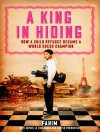This new edited collection assembles academic essays and intellectual activism equally next to visual essays and artistic interventions and proposes a different concept for fashion research that eschews the traditional logic of academic fashion studies. It features acclaimed designers, artists, curators and theorists whose work investigates the multi-faceted debates on the rise of practice-based research in fashion.
The book sets out to explore current issues in fashion research with a particular focus on both methodology and expansion of the field to encompass overlooked voices and narratives. It has a particular concern with the relationships between theory and practice and with how knowledge is created and disseminated in fashion studies. It is an excellent and really valuable contribution to the field at a point both when fashion studies is expanding and when the fashion industry is at a crucial point of change.
Some of the contributions were originally presented at a symposium hosted by the Austrian Center for Fashion Research ‘TALKSHOW: The politics of practice-based fashion research’ at Vienna’s Museum of Applied Arts, curated by Wally Salner. The symposium brought together a group of fashion scholars, designers, educators and practitioners to explore critical contemporary fashion (research) practices, and to investigate critical fashion knowledge between theory and practice, beyond assumed disciplinary and epistemological boundaries. Many contributions in this volume were initially presented at that symposium, while others are testimonies of international debates that were part of the research activities of the Austrian Center for Fashion Research, a research project funded by the Austrian Federal Ministry of Science Research and Economy, led by Elke Gaugele.
The book is structured into three sections: Fashion Knowledge, Practice-Based Fashion Research, and Sites of Fashion and Politics. Contributions look at new forms of fashion knowledge that are forming with and along shifting fashion practices, practice-based fashion research, and sheds light on different sites and entanglements of fashion and politics in distinctive contemporary and historical moments of de/colonization, anti/racism, and anti/globalization.
Elke Gaugele is cultural anthropologist and professor of fashion, styles and contextual design at the Academy of Fine Arts in Vienna, Austria. Monica Titton is a sociologist, fashion theorist and senior scientist at the fashion design department of the University of Applied Arts Vienna, Austria. Other contributions are from Elke Bippus, Astrid Engl, Jojo Gronostay, Ruby Hoette, Bianca Koczan, Priska Morger, NCCFN, Wally Salner, Andreas Spiegl, José Teunissen, Lara Torres, Carol Tulloch and Maria Ziegelböck
Readers will be academics, practitioners, designers, artists, curators, museums, theoretical scholars, lecturers, practice-based researchers, students and practitioners at all levels in the fields of fashion, textile, art and design.
This new book with its original focus on practice-based research will be useful for a general and academic readership alike, and to all those working within the field of fashion studies, including those with a theoretical focus, fashion practitioners and those working within innovative pockets of the fashion industry.
表中的内容
Introduction: The Politics of Fashion Knowledge between Practice and Theory 1
Elke Gaugele and Monica Titton
PART I: FASHION KNOWLEDGE 13
1. The Transformative Power of Practice-Based Fashion Research 15
José Teunissen
2. Theory as Practice: Notes on the Sociology of a Practice-Based Fashion Theory 27
Monica Titton
3. Ornamental Politics and Assembled Textures of Artistic Research: The Project kotomisi: un-inform by knowbotiq 36
Elke Bippus
4. Fashion Ontology: Researching the Possibilities for Knowing through an Expanded Fashion Practice 53
Lara Torres
5. DISCOURSE, Cruise 2020 70
Maria Ziegelböck
PART II: REFLECTIONS ON FASHION AS PRACTICE 79
6. Notes on Fashion Practice as Research: Episodes of Conversation Pieces 81
Ruby Hoette
7. Work with the Existing: Be Realistic 91
NCCFN
8. The Empress’s New Clothes, or How One Makes Fashion (or Doesn’t) 96
Wally Salner (translated by Travis Lehtonen)
9. Skin Host and Heavenly Visitor 106
Priska Morger (Prof. Prisk AMORger)
PART III: SITES OF FASHION AND POLITICS 111
10. T-shirt Matters 113
Carol Tulloch
11. DEAD WHITE MEN’S CLOTHES 136
Jojo Gronostay with an introduction by Elke Gaugele
12. Fashion Politics: Dressing Segregation and Distinction 143
Andreas Spiegl
13. Early- Modern Fashion Knowledge and the Western Politics of Science 150
Elke Gaugele
Notes on Contributors 163
关于作者
Dr Monica Titton is a sociologist, fashion theorist and culture critic. She currently works as a Senior Scientist at Modeklasse, the Fashion Department of the University of Applied Arts Vienna. Her work develops a critical, sociological perspective at the intersections of fashion, politics, art, and identity. Her research is guided by an effort to expand and develop theoretical frameworks for critical analyses of fashion, and is informed by the traditions of poststructuralism, Marxism, feminism and postcolonialism. She has written and published on collective narratives of self and identity in digital fashion media, on the interrelationship between contemporary art practices and fashion design, on the subversion and affirmation of gender stereotypes in postfeminist media culture, on the limits of criticism in fashion journalism, and on the convergence of feminism, fashion and radical protest.
Concerns with postcolonial inquiry in fashion theory, feminist activism and corporeality have become central to her most recent research. In addition to her scholarly work, she regularly writes about fashion, art, and culture for newspapers, magazines, museums, and cultural institutions.
Recent publications include Fashion and Postcolonial Critique (co-edited with Elke Gaugele, Sternberg Press 2019) and Afterthought: Fashion, Feminism and Radical Protest in the special issue ‘Fashion as Politics: Dressing Dissent’ of Fashion Theory co-edited with Elke Gaugele (vol. 23, issue 6, 2019).












